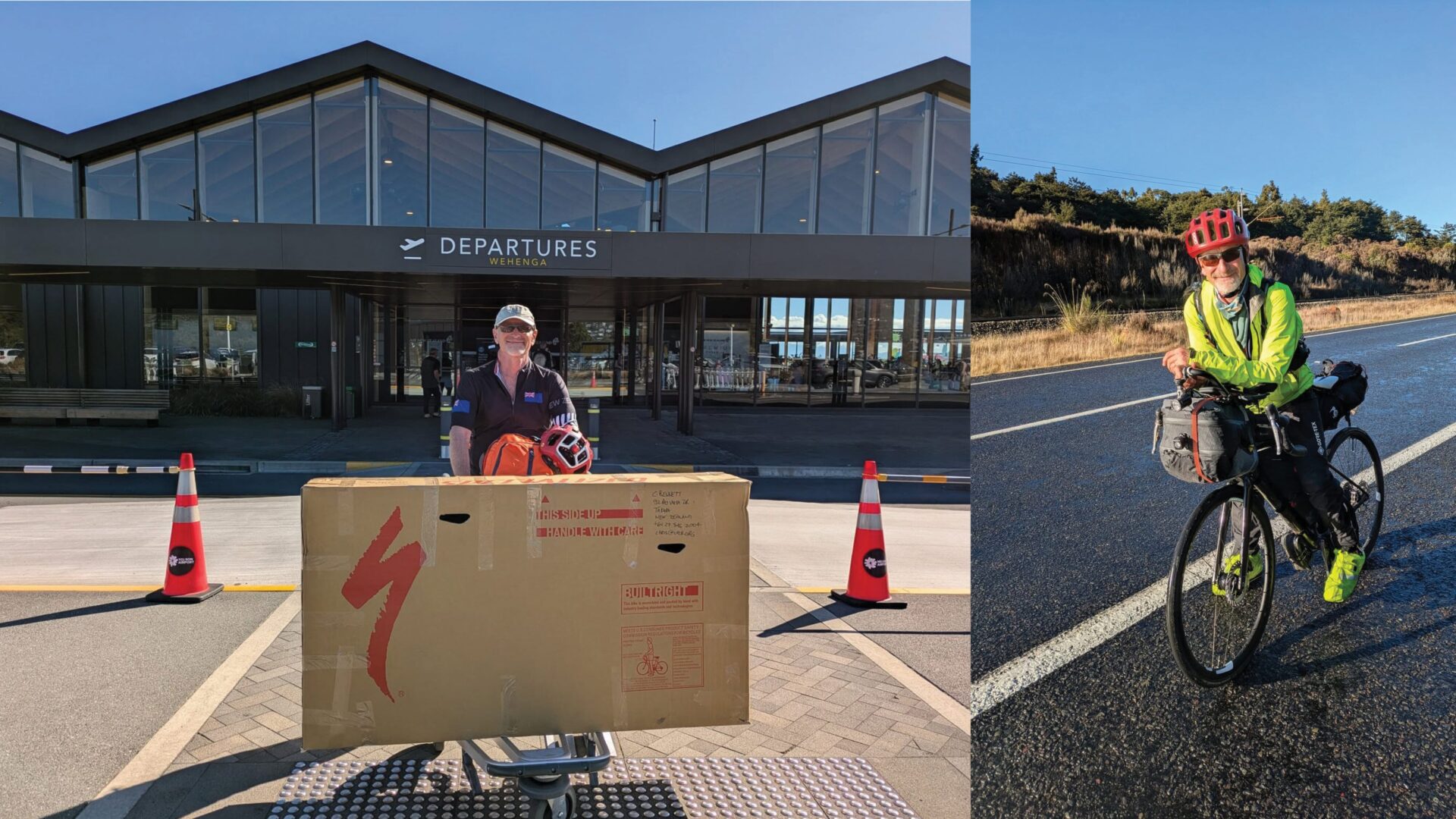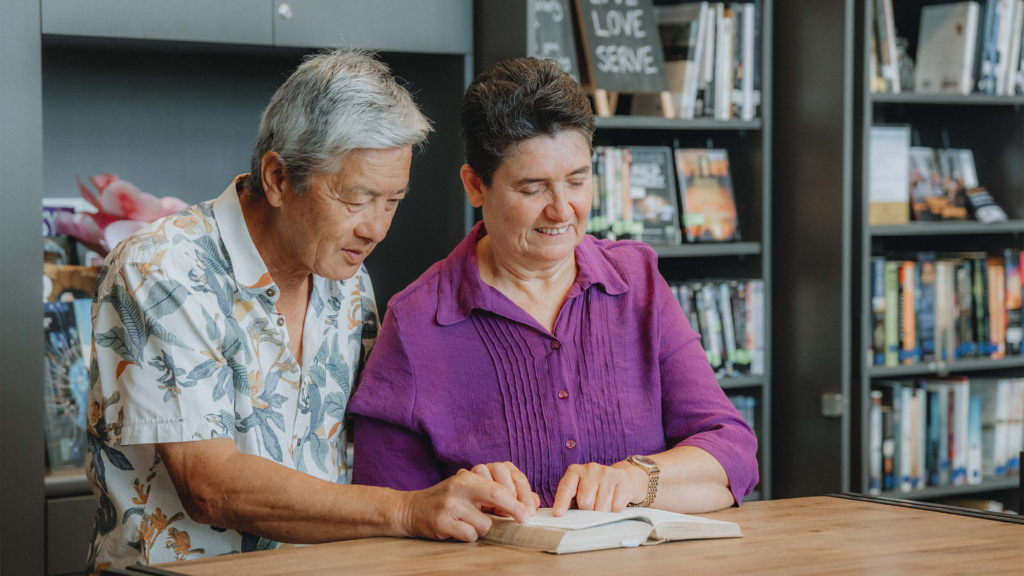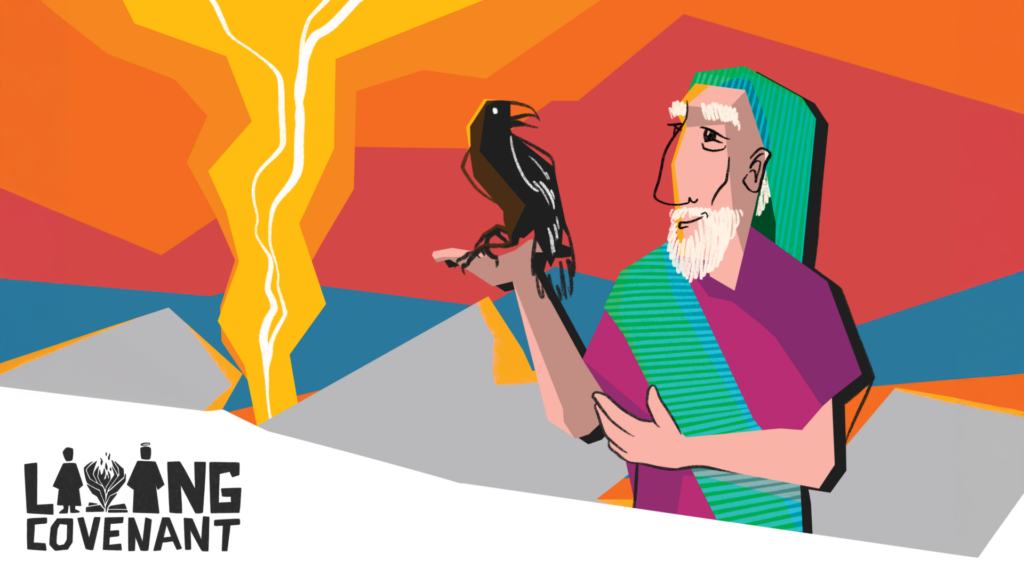Christopher Bennett, a 66-year-old Adventist from New Zealand, set a new record in the Guinness Book of Records for the Fastest Known Time for a veteran, becoming the oldest person to circumnavigate the globe by bicycle. Not only that, but Bennett is also the first person to complete this challenge with a disability.
The feat was acheived as Bennett competed in the Tour Divide Race—riding a bicycle for 29,000km around the world while unsupported by other riders or vehicles. The Guinness Record requirements for cycling around the world require travelling 29,000km in one direction and passing through two antipodal points of the globe. Riding unsupported means that Bennett had to carry all his gear and supplies on his bike with no crew or support vehicle to travel with him.
Bennett suffers from post-concussion syndrome after a traumatic brain injury in 2018. During the Tour Aotearoa bicycle race in 2018 across the length of New Zealand, he crashed his bicycle. Not knowing how the accident happened, he only remembers waking “up in the forest lying in a ditch with my face torn open and a broken helmet”. Bright lights and loud noises can overwhelm him, and he experiences bad headaches and migraines, panic attacks and occasionally loses the ability to speak.
Bennett started his Tour Divide race on May 1, in Nukus, Uzbekistan and travelled 8500km across Asia to Shanghai, China. From Shanghai, he flew to Darwin, Australia, and rode down to Port Macquarie before flying to Wellington, New Zealand, and riding to Auckland, travelling a total distance of 3500km. He then flew to Anchorage, Alaska (USA) and rode 10,300km across the United States of America to Nova Scotia, Canada. His final leg of the journey was across Europe, starting in Lisbon, Portugal and riding 6700km to Vantaa, Finland where he finished on September 7. In total, he rode 29,051km across the world with a 156,888m of climbing distance, crossing 16 countries in 129 days, and travelling a maximum of 605km in one single push.
During the race, Bennett averaged around 220km of cycling each day. He had to deal with injuries, bike repairs, health scares, panic attacks, headaches and brain shutdowns completely on his own. He stated that at one point, he had to “lie down on the side of the road and cover my eyes for two hours just to reset my brain and calm it down”. He faced multiple hurdles during this race aside from just health challenges. In Kazakhstan he rode through massive storms with nowhere he could seek shelter for 40km. In China, police stopped him from cycling through a restricted region, and placed him on a train to go elsewhere.
Although Bennett’s terrible bicycle accident changed his life significantly, he didn’t lose his love for cycling.Riding his bicycle is his “happy place”, and he relishes the freedom of the open road and the challenges involved. He couldn’t continue work after his accident, however, he maintains a healthy mindset, stating that “recovery isn’t about getting back to how things were. It’s about finding what you can do.”
Bennett attempted this record for his tribe: “people with disabilities, people over 60, people who think adventure ends when you get old.” He expressed the importance of individuals with disabilities, especially brain injuries, redefining what is possible and working around challenges that arise. “Either you master your disability, or it masters you.”
For Bennett, cycling is a key part of his Christian walk. It is a way for him to witness to others, being able to interact with people he would not have the opportunity to interact with otherwise. “Although these are bikepacking races, as a Christian we have a different philosophy towards competition. . . You have an opportunity as a Christian just to show God’s love to people, and that’s what we’re supposed to do.”
Olivia Fairfax is a producer at Adventist Media.






